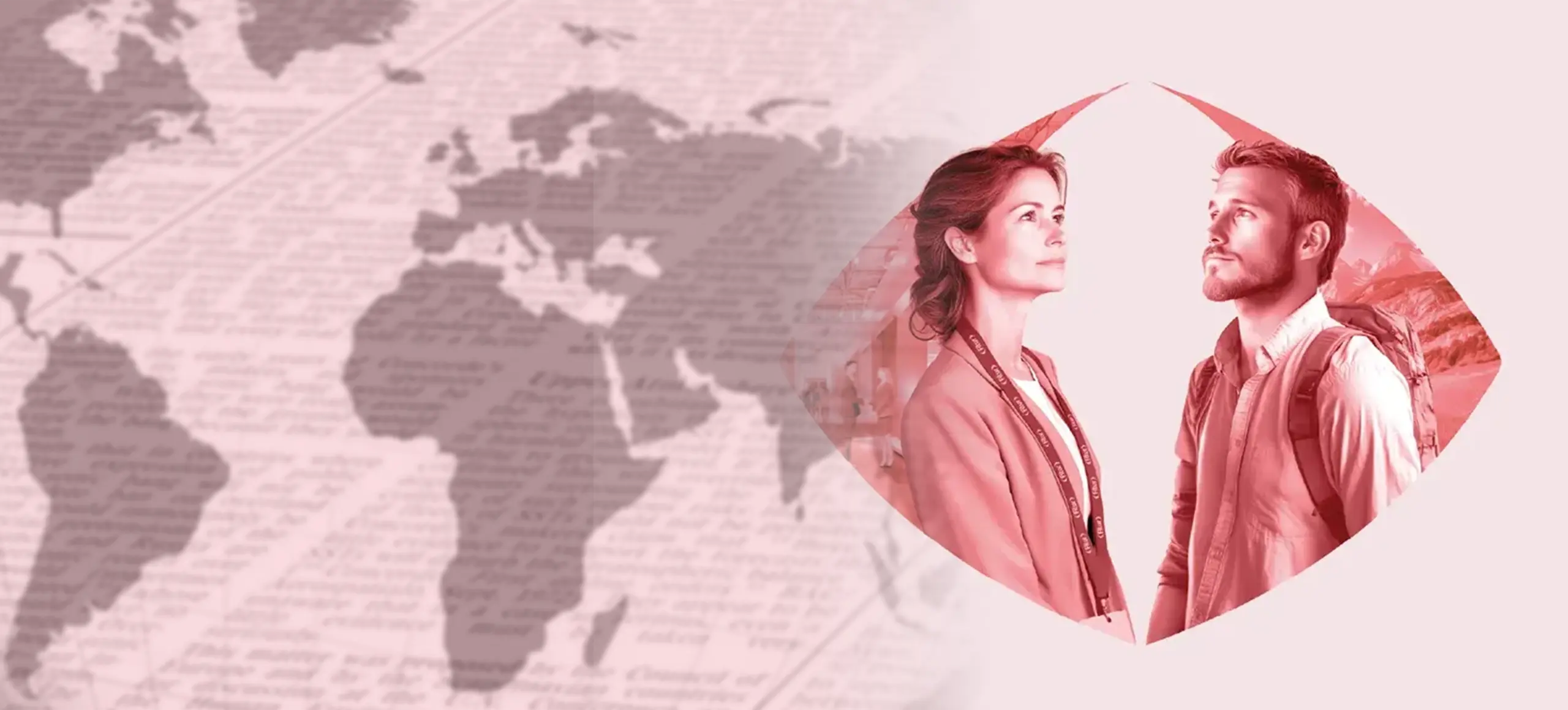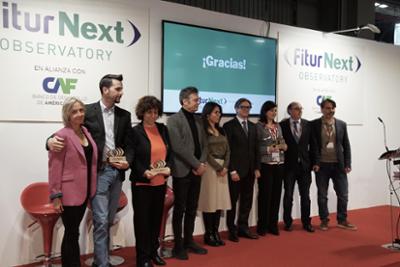

FiturNext 2023 launches four days dedicated to sustainability with the presentation of the report "Towards a regenerative tourism".
● The document, presented during the first day of FITUR, emphasises the value of the regeneration of the natural environment as a tourism model to contribute to sustainability and the fight against climate change.
● Niels Olsen, Minister of Tourism of Ecuador, and Marta Domènech, Director of Tourism of Catalonia, among the most prominent voices at this year's FiturNext, who will participate in two round tables with industry experts.
FiturNext, the FITUR Observatory dedicated to promoting good tourism practices that value sustainability in alliance with CAF - Development Bank of Latin America, has launched four conferences that highlight the importance of contributing to the regeneration of the natural environment through tourism. One of the most important aspects of the inauguration was the presentation of the report "Towards a regenerative tourism", a document that includes good sustainable practices and the main conclusions of the analysis carried out by the Observatory throughout this edition.
Francisco Rodríguez, head of the tourism area at Ideas for Change, the entity that has developed the research, was in charge of explaining the key points of the report, stressing "that the objective of tourism must be to have a clearly positive impact. To this end, regenerative tourism is the strongest bet".
Prize-giving ceremony with the protagonists of the event
The celebration of the awards ceremony for the winning and finalist initiatives of the 2023 Challenge is one of the highlights of the edition. Oscar Caro, CEO and Founder of Plogging Tour, Sandra Benbeniste, Director of the Iberostar Group EMEA Sustainability Office, and Nani Angulo and Juan Andrés Pozueta, co-founders of Green Pepper Travel, collected the awards during the ceremony. It is worth mentioning the presence of Christian Asinelli, Vice-President Director of Strategic Programming of the CAF Presidency, and Dr. Daniela Moreno, member of the FiturNext Advisory Board, who presented the awards together with the Ideas for Change team.
The presentation was followed by the round table discussion "From corporate social responsibility to sectoral social responsibility" moderated by Javi Creus, Founder and Strategy Director of Ideas for Change. During the session, sector experts such as Miwi Clavera, Managing Director of Dirse, highlighted the union between companies to share challenges and seek solutions together. To these words, Antonia del Toro, CSR Director of Grupo Piñero, added how collaboration between companies and sectors can help to improve the world through awareness-raising movements on sustainability.
Asinelli commented that the organisation is implementing an "agenda to become the green bank of Latin America and the Caribbean, dedicating 40% of its funding to projects linked to climate change and biodiversity. In this sense, we will also contribute to the development of sustainable and regenerative tourism that leads to the restoration and enhancement of the region's rich natural and cultural heritage, and that values ecosystem services.
An inauguration that sets the agenda for FiturNext 2023
Throughout the day, the stand has also hosted dialogues with the winning initiatives of the edition to learn more about how they contribute to a more responsible tourism with the environment and the local community. Caro held a conversation with Juan Martorell, deputy director of the Consejo Superior de Deportes, and Beatriz Soliva, director of institutional relations of Plogging Tour, about sport as a tool for territorial transformation. On the other hand, Benbeniste and the journalist and consultant Isabel Benítez, discussed how to regenerate the environment to revalue tourism.
Finally, the day closed with Angulo and Pozueta, in a dialogue with the journalist Kris Ubach. During the session, the speakers shared strategies and tools for improving planetary health through regenerative tourism.
The first day kicked off FiturNext 2023, which will take place at the Ifema exhibition centre until Saturday 21 January. The programme included a round table discussion with Marta Domènech, Director of Tourism of Catalonia, and Isabel Vidal Tomás, Director of Tourism of the Balearic Islands, on "Regenerative public policies", moderated by Francisco Rodríguez.
In addition, experts from the tourism sector, such as Arturo Bravo, Vice-Minister of Tourism of Colombia, and Frederico Granato, President of the National Parks of Argentina, will be present in the framework of the CAF space. Winning and finalist initiatives from past editions will also participate with speakers such as Antonia Varela, from the Starlight Foundation, Alberto Pordomingo, from Apadrina un Olivo, Gemma Roselló, from Sentir el Alto Tajo, Sandra Carvao, from the World Tourism Organization, Miguel Carrasco, from Predif, and finalists of the 2023 Challenge such as Olga Caro from Procoreef and David Leventhal from Playa Viva.
The report "Towards a regenerative tourism" is available in the attached file.
More information: www.ifema.es/fitur-next
About FITUR
FITUR is one of the world's leading trade fairs for tourism events and a hub par excellence for the Ibero-American market. Organised by IFEMA MADRID, it will hold its 42nd edition from 18 to 22 January 2023 at the Spanish capital's Trade Fair Centre, with the support of its declaration by the Government as an Event of Exceptional Public Interest. Added to this is the significant support it receives from institutions, countries and destinations, hotel chains, agencies and tour operators, technology companies, suppliers, means of transport, etc., which make FITUR a great platform of reference to learn about new developments, proposals and future trends in terms of specialisation, technology and sustainability, and the essential event for the entire heat chain of the international tourism industry.
About CAF
CAF - Development Bank of Latin America - has the mission to promote sustainable development and regional integration through the financing of public and private sector projects, the provision of technical cooperation and other specialised services. Established in 1970 and currently made up of 21 countries - 19 from Latin America and the Caribbean, together with Spain and Portugal - and 13 private banks, it is one of the main sources of multilateral financing and an important generator of knowledge for the region.





